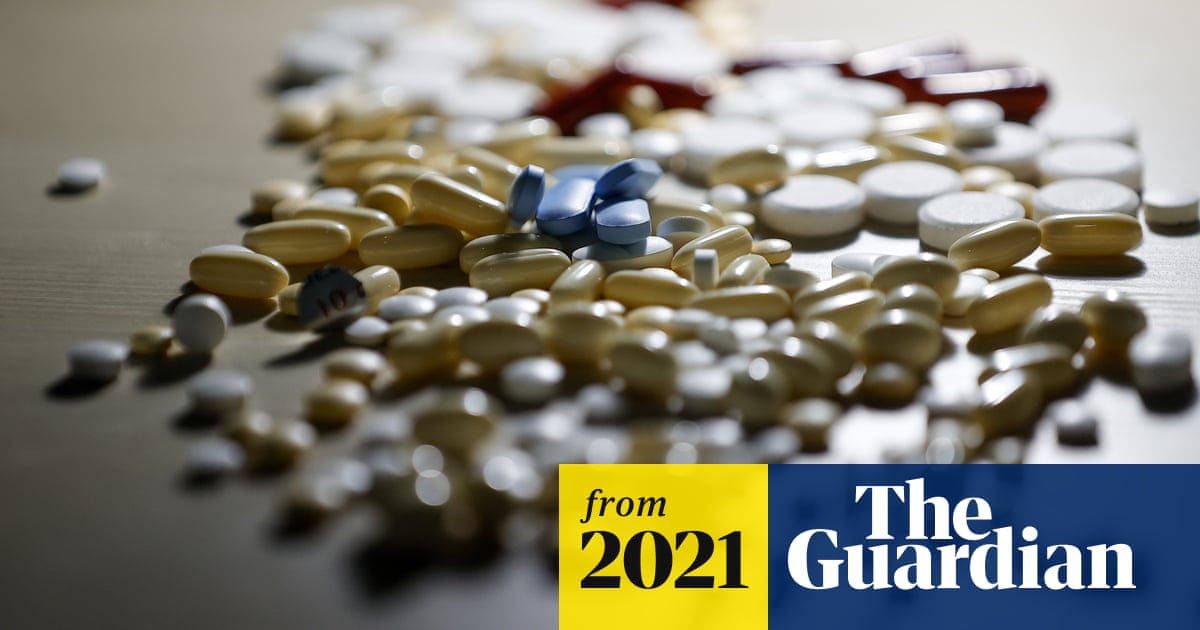andipandi
Legend
- Joined
- May 29, 2015
- Messages
- 20,880
3rd October 2024
1. This factsheet provides guidance on the domestic control measures, including licensing and exemptions applicable to cannabis, cannabidiol (CBD) and controlled cannabinoids under drugs legislation (namely, the Misuse of Drugs Act 1971 and associated secondary legislation).
2. Important Note: This is intended as general guidance only relating to controlled drugs; it is not legal advice. This factsheet does not provide guidance on regulatory or legal requirements applicable under other (non-drugs) regimes such as medicines or foods. Anyone in doubt should seek their own independent legal advice to ensure they are compliant with any and all relevant legislation.
4. In addition to cannabis being controlled, a number of cannabinoids (i.e. the active chemical compounds found in the cannabis plant) are controlled as Class B drugs under Part 2 of Schedule 2 to the MDA 1971. Cannabinol is a Class B drug under Part 2 of Schedule 2 to the MDA 1971. Cannabinol derivatives are Class B drugs under Part 2 of Schedule 2 to the MDA 1971, including tetrahydrocannabinol (Δ9-THC or “THC”). Cannabinol and cannabinol derivatives are defined in Part 4 of Schedule 2 to the MDA 1971.
5. Cannabidiol (“CBD”) is a cannabinoid present in the cannabis plant. Pure CBD, as an isolated substance, is not controlled under the MDA 1971. However, the legal status of CBD products varies depending on what the product is. Preparations or products containing controlled drugs are, themselves, controlled. The Home Office agrees with the assessment made by the Advisory Council on the Misuse of Drugs that, due to difficulties in isolating CBD from other cannabinoids, consumer CBD products also contain varying amounts of controlled cannabinoids, such as THC and delta-9-tetrahydrocannabinol-C3 (THC-V).
6. Any CBD products which contain controlled cannabinoids will be classified as Class B controlled drugs under paragraph 5 of Part 2 of Schedule 2 to the MDA 1971. However, if a product meets the “exempt product” definition in Regulation 2 of the MDR 2001, it will not be subject to the prohibitions on importation, exportation, production, supply and possession under the MDA 1971. This is explained further in paragraphs 26 to 36 of this document.
7. “Cannabis-based products for medicinal use in humans” (“CBPMs”) are defined in Regulation 2 of the MDR 2001. They are any preparation or product which is, or contains, cannabis, cannabis resin, cannabinol and cannabinol derivatives (not being dronabinol or its stereoisomers), which is produced for medicinal use in humans and is a medicinal product, or a substance or preparation for use as an ingredient of, or in the production of an ingredient of, a medicinal product. Note that this definition excludes the cannabis-based medicines referred to in paragraph 8 below. CBPMs were placed in Schedule 2 to the MDR 2001 in 2018. CBPMs are Class B drugs, subject to additional controls in the MDR 2001 (see Regulation 16A), and Home Office licensing requirements relating to these products are outlined below [footnote 1]. A Circular was issued in 2018 explaining the changes to the MDR 2001, and can be found on legislation.gov.uk at the following link: Circular 018/2018: rescheduling of cannabis-based products for medicinal use in humans - GOV.UK (www.gov.uk).
8. In addition, some cannabis-based medicines have received marketing authorisation, granted in accordance with medicines legislation, and been separately scheduled in the MDR 2001 following ACMD advice. These are Sativex (captured by paragraph 5 of part 1 of Schedule 4 to the MDR 2001), and Epidyolex (captured by paragraph 10 of Schedule 5 to the MDR 2001).
..................
21. However, cannabis is a Class B drug under Part 2 of Schedule 2 to the MDA 1971; and a number of cannabinoids (i.e. the active chemical compounds found in the cannabis plant) are controlled as Class B drugs, including cannabinol and cannabinol derivatives, such as THC and THC-V.
22. The Home Office view is that it is nearly impossible to extract and isolate CBD from the cannabis plant or to create CBD synthetically without traces of other controlled cannabinoids, such as THC and THC-V. It is therefore highly likely that CBD products will contain controlled Class B cannabinoids, such as THC and THC-V.
23. CBD products that meet the definition of a CBPM will be Class B controlled drugs and subject to Regulation 16A and the relevant restrictions for Schedule 2 drugs [footnote 5]. CBD products that meet the definition of a cannabis-based medicine that has been separately scheduled will be Class B drugs in the appropriate schedule (such as Epidyolex, which is a Schedule 5 drug). Otherwise, CBD products that contain controlled cannabinoids will be Class B, Schedule 1 controlled drugs under the MDA 1971 and the MDR 2001 and therefore subject to the restrictions for Schedule 1 drugs [footnote 6]
24. A Home Office licence is required to lawfully import, export, supply, produce or possess a CBD preparation or product (including, if they are to be manufactured, the materials used to make it) under Regulation 5 of the MDR 2001, unless it meets the “exempt product” definition. Licences would not ordinarily be issued to enable the use of Schedule 1 controlled drugs unless the licence holder can provide evidence of a product with a lawful route to market. Exceptions may include, for example, use in bona-fide research or a recognised UK clinical trial.
25. Where an end product benefits from the exempt product definition or is a CBPM or a cannabis-based medicine, a Home Office licence will be required to cultivate cannabis or import, export, supply or possess controlled drugs (which are not themselves exempt products) in the process of producing such products. This could include, for example, the cultivation of the cannabis plant or possession of controlled parts of the cannabis plant in order to produce exempt products.
1. This factsheet provides guidance on the domestic control measures, including licensing and exemptions applicable to cannabis, cannabidiol (CBD) and controlled cannabinoids under drugs legislation (namely, the Misuse of Drugs Act 1971 and associated secondary legislation).
2. Important Note: This is intended as general guidance only relating to controlled drugs; it is not legal advice. This factsheet does not provide guidance on regulatory or legal requirements applicable under other (non-drugs) regimes such as medicines or foods. Anyone in doubt should seek their own independent legal advice to ensure they are compliant with any and all relevant legislation.
General legislative position
3.Cannabis is a Class B controlled drug under Part 2 of Schedule 2 to the Misuse of Drugs Act 1971 (MDA 1971). Cannabis is defined in section 37(1) of the MDA 1971 and is, in essence, the plant or any part of the plant with limited exceptions (the exceptions are the mature stalk; fibre produced from the mature stalk; or the seed of any such plant). It is also listed in Schedule 1 to the Misuse of Drugs Regulations 2001 (“MDR 2001”) and designated under the Misuse of Drugs (Designation) (England, Wales and Scotland) Order 2015 (2015 Order). As such, it is unlawful to possess, supply, offer to supply, produce, import or export this drug except under a Home Office licence. It is also an offence to cultivate any plant of the genus Cannabis except under a Home Office licence.4. In addition to cannabis being controlled, a number of cannabinoids (i.e. the active chemical compounds found in the cannabis plant) are controlled as Class B drugs under Part 2 of Schedule 2 to the MDA 1971. Cannabinol is a Class B drug under Part 2 of Schedule 2 to the MDA 1971. Cannabinol derivatives are Class B drugs under Part 2 of Schedule 2 to the MDA 1971, including tetrahydrocannabinol (Δ9-THC or “THC”). Cannabinol and cannabinol derivatives are defined in Part 4 of Schedule 2 to the MDA 1971.
5. Cannabidiol (“CBD”) is a cannabinoid present in the cannabis plant. Pure CBD, as an isolated substance, is not controlled under the MDA 1971. However, the legal status of CBD products varies depending on what the product is. Preparations or products containing controlled drugs are, themselves, controlled. The Home Office agrees with the assessment made by the Advisory Council on the Misuse of Drugs that, due to difficulties in isolating CBD from other cannabinoids, consumer CBD products also contain varying amounts of controlled cannabinoids, such as THC and delta-9-tetrahydrocannabinol-C3 (THC-V).
6. Any CBD products which contain controlled cannabinoids will be classified as Class B controlled drugs under paragraph 5 of Part 2 of Schedule 2 to the MDA 1971. However, if a product meets the “exempt product” definition in Regulation 2 of the MDR 2001, it will not be subject to the prohibitions on importation, exportation, production, supply and possession under the MDA 1971. This is explained further in paragraphs 26 to 36 of this document.
7. “Cannabis-based products for medicinal use in humans” (“CBPMs”) are defined in Regulation 2 of the MDR 2001. They are any preparation or product which is, or contains, cannabis, cannabis resin, cannabinol and cannabinol derivatives (not being dronabinol or its stereoisomers), which is produced for medicinal use in humans and is a medicinal product, or a substance or preparation for use as an ingredient of, or in the production of an ingredient of, a medicinal product. Note that this definition excludes the cannabis-based medicines referred to in paragraph 8 below. CBPMs were placed in Schedule 2 to the MDR 2001 in 2018. CBPMs are Class B drugs, subject to additional controls in the MDR 2001 (see Regulation 16A), and Home Office licensing requirements relating to these products are outlined below [footnote 1]. A Circular was issued in 2018 explaining the changes to the MDR 2001, and can be found on legislation.gov.uk at the following link: Circular 018/2018: rescheduling of cannabis-based products for medicinal use in humans - GOV.UK (www.gov.uk).
8. In addition, some cannabis-based medicines have received marketing authorisation, granted in accordance with medicines legislation, and been separately scheduled in the MDR 2001 following ACMD advice. These are Sativex (captured by paragraph 5 of part 1 of Schedule 4 to the MDR 2001), and Epidyolex (captured by paragraph 10 of Schedule 5 to the MDR 2001).
..................
Cannabidiol (CBD) and CBD products
20. CBD as an isolated substance, in its pure form, is not controlled under the MDA 1971.21. However, cannabis is a Class B drug under Part 2 of Schedule 2 to the MDA 1971; and a number of cannabinoids (i.e. the active chemical compounds found in the cannabis plant) are controlled as Class B drugs, including cannabinol and cannabinol derivatives, such as THC and THC-V.
22. The Home Office view is that it is nearly impossible to extract and isolate CBD from the cannabis plant or to create CBD synthetically without traces of other controlled cannabinoids, such as THC and THC-V. It is therefore highly likely that CBD products will contain controlled Class B cannabinoids, such as THC and THC-V.
23. CBD products that meet the definition of a CBPM will be Class B controlled drugs and subject to Regulation 16A and the relevant restrictions for Schedule 2 drugs [footnote 5]. CBD products that meet the definition of a cannabis-based medicine that has been separately scheduled will be Class B drugs in the appropriate schedule (such as Epidyolex, which is a Schedule 5 drug). Otherwise, CBD products that contain controlled cannabinoids will be Class B, Schedule 1 controlled drugs under the MDA 1971 and the MDR 2001 and therefore subject to the restrictions for Schedule 1 drugs [footnote 6]
24. A Home Office licence is required to lawfully import, export, supply, produce or possess a CBD preparation or product (including, if they are to be manufactured, the materials used to make it) under Regulation 5 of the MDR 2001, unless it meets the “exempt product” definition. Licences would not ordinarily be issued to enable the use of Schedule 1 controlled drugs unless the licence holder can provide evidence of a product with a lawful route to market. Exceptions may include, for example, use in bona-fide research or a recognised UK clinical trial.
25. Where an end product benefits from the exempt product definition or is a CBPM or a cannabis-based medicine, a Home Office licence will be required to cultivate cannabis or import, export, supply or possess controlled drugs (which are not themselves exempt products) in the process of producing such products. This could include, for example, the cultivation of the cannabis plant or possession of controlled parts of the cannabis plant in order to produce exempt products.


















